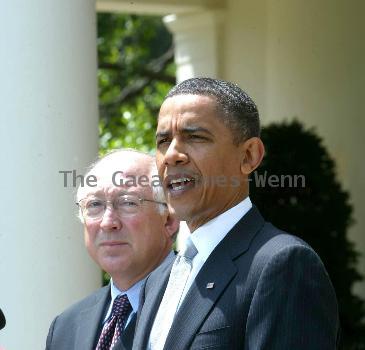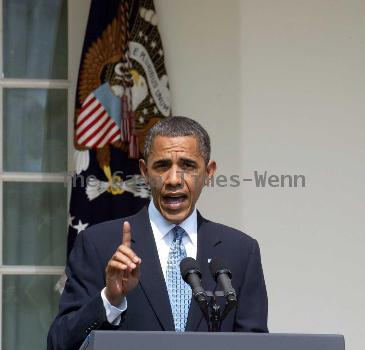Congress expected to shy away from tough votes before election
By Jim Abrams, APSunday, September 12, 2010
Congress to tread carefully in run-up to election
WASHINGTON — Congress returns this week with embattled Democrats torn between trying to show they have the economic answers and fearing the further wrath of voters over new government programs.
It appears the fears will win out.
The inbox is overflowing as lawmakers end their summer recess and undertake four weeks of writing and trying to pass bills before leaving town ahead of the Nov. 2 election: Bush-era tax cuts are set to expire at year’s end; annual spending bills await action; and President Barack Obama has just come out with a new plan to stimulate the economy through tax credits, breaks for business investment and public works projects.
But progress on any of those before the election is doubtful.
Majority Democrats are returning to Washington after a month of listening to voters angry over government spending. Republicans are dead-set against White House initiatives.
“It will be difficult to get a very broad agenda through,” said House Majority Leader Steny Hoyer, D-Md.
Some issues probably will fall back into a lame-duck session after the election. Even then, Republicans won’t be raring to cooperate, particularly if they regain control of the House or Senate.
Democrats insist they’ll act before the end of the year to extend the middle-class tax cuts pushed through by President George W. Bush. And if Congress does nothing? Then a family in the $50,000-$75,000 income range would face an extra $1,126 in taxes next year.
Obama and most Democrats want the extensions to apply only to individuals with annual incomes of less than $200,000, or joint filers earning less than $250,000. Continuing those tax cuts would add $3.1 trillion to the national debt over the next decade. The debt would rise by an additional $700 billion if tax cuts for the richest people are also extended.
But some Democrats say that with the economy in bad shape, the time’s not right to end tax breaks for the wealthy. Republicans, headed by House GOP leader John Boehner of Ohio, are demanding a two-year freeze on all tax rates.
“If the only option I have is to vote for those at 250 and below, of course I’m going to do that. But I’m going to do everything I can to fight to make sure that we extend the current tax rates for all Americans,” Boehner told CBS’ “Face the Nation” in an interview broadcast Sunday.
Sen. Jack Reed, D-R.I., says he expects the Senate to get into “serious debate” on the Bush tax cuts, but he won’t not speculate on the chances for an agreement. House Democratic leaders say they prefer to see what the Senate does before tackling the issue.
Congress hasn’t sent the president any of the 12 annual spending bills it must consider to pay for government programs when the new budget year starts on Oct. 1. With lawmakers leery of voting for spending increases, prospects for much action on these bills are slim. Congress instead will have to vote to keep agencies funded at current levels to avoid a shutdown.
Among others on the may-not-happen list are a bill to authorize defense programs for 2011 and a bill requiring greater disclosure of corporate and union spending on campaign ads.
Senate Republicans have balked at the defense bill because the House added a provision to end the don’t ask-don’t tell policy for gays serving in the military. GOP aides said it would require three weeks or four weeks of debate time if that provision remains.
The campaign spending bill is in response to a Supreme Court ruling lifting restrictions on election ad spending. Advocates of the measure, which requires greater identification of those financing ads, had hoped it could be passed before the November elections. But in July, the Senate fell three votes short of overcoming a GOP filibuster.
That doesn’t mean it’ll be a do-nothing Congress for the next month.
The Senate’s first order of business is a bill creating a $30 billion government fund to encourage lending to small businesses and provide about $12 billion in small business tax breaks. Democrats should have the votes, and it could pass in the week the Senate returns.
Also on tap, to the dismay of Democrats, are House ethics committee trials of two prominent Democrats, Reps. Charles Rangel of New York and Maxine Waters of California, for alleged ethics violations. One or both of those trials could begin before the fall election.
The Senate planned to open a trial Monday on the impeachment of U.S. District Court Judge G. Thomas Porteous Jr. The House in March approved four impeachment articles charging the Louisiana judge with taking payoffs and lying under oath.
It’s the first impeachment trial since the one held for former President Bill Clinton in 1999. The Senate acquitted Clinton. If Porteous is found guilty, he would become the eighth federal judge in U.S. history to be impeached and convicted.
Other issues with a chance of progress:
—The Senate is close to passing food safety legislation giving the Food and Drug Administration greater power to order recalls and to increase inspections of food facilities. The House has passed a similar bill.
—The House could take up a $4.5 billion Senate-passed child nutrition bill, promoted by first lady Michelle Obama, that would create healthier standards for food served in schools.
—The Senate could act on a rules change, pushed by some of its newer members, to end the custom where a single senator can secretly block a bill or a nomination.
—The Senate Foreign Relations Committee plans to vote on a new arms treaty with Russia. A two-thirds vote by the full Senate is needed for ratification. Also possible, although less likely, is consideration of a long-stalled free trade agreement with South Korea.
Tags: 2010 United States General Election, Barack Obama, Bill Clinton, Campaigns, Events, General Elections, Government Programs, Impeachments, International Trade, Military Affairs, National Courts, North America, Political Corruption, Political Issues, Political Organizations, Political Parties, United States, United States General Election, Washington







